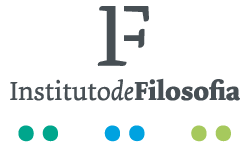Research Seminar on "Aquinas on Knowing as Being and Being-About"
Thérèse Cory research seminar, Porto, 12-19 October 2018
From: 2018-10-12 To:2018-10-19
Thematic Line
Medieval & Early Modern Philosophy
Research Groups
Aristotelica Portugalensia
Reason, Politics & Society
Prof. Thérèse Scarpelli Cory
(John and Jean Oesterle College Chair and Associate Professor; Notre Dame University, IN)
Aquinas on Knowing as Being and Being-About
Faculdade de Letras da Universidade do Porto
12th to 19th October, 2018
Free attendance, with previous registration by email to [email protected]
Abstract
What conceptual models shape our thinking about the mind and its activities or experiences? This lecture and seminar studies a neglected model of the mind in a key Latin medieval thinker, Thomas Aquinas. Aquinas’s model of the mind, which I call an “intellectual metaphysics,” diverges strikingly from a model (more familiar from later thinkers such as Descartes) of the mind as a space in which information is “contained” and “displayed” to an inner eye. I argue that this Cartesian “containment” or “visual” model has implicitly and anachronistically shaped contemporary readings of Aquinas’s theory of intellect, and is responsible for some well-known recent difficulties that have been raised concerning to his theory of human knowing. In reality, Aquinas conceives of mind and its activities in terms of acquiring a new kind of being, rather than containing ideas. According to this “metaphysical model,” the intellect is constituted by what it knows; to be an intellect-thinking-about-justice is to be “intelligible justice,” or justice existing in intellectual-intelligible being. Unfolding this metaphysical model and its implication, we will examine a new, historically-sensitive reading of Aquinas’s theory of mind and knowing against the background of his Greek and Arabic sources, and explore the implications for his treatment of problems concerning mind’s relation to extramental objects (i.e., what makes thoughts be “about” something?).
Comments by: Tommaso Piazza (Università degli studi di Pavia), Pedro Mantas España (Universidade de Córdoba), Rodrigo Guerizoli (Universidade Federal do Rio de Janeiro), Celia López Alcalde, José Higuera, José Meirinhos, Mattia Riccardi, Paula Oliveira e Silva, Sofia Miguens, Vera Rodrigues (Universidade do Porto).

Open lecture
Knowing as Being from Aristotle to Aquinas: An Alternative Model of Mind in the Graeco-Arabic-Latin Tradition
12th October, 17h30, Departamento de Filosofia
This lecture would set up the broad historical picture; why we should attend to the way that we imaginatively "model" mental activities in interpreting historical thinkers, and how a "metaphysical model" of knowing as a kind of being is developed in Aristotle, Alexander of Aphrodisias, Plotinus, Averroes, and Aquinas.
Seminar
15th, 16th, 17th, 18th, 19th October 2018
10h30-12h30, Departamento de Filosofia
Day 1: Metaphysical model & Theory of intelligible being (Introduction & Chapter 1)
Day 2: Order of intellects & the notion of intelligible being as self-manifesting (Chapters 2-3 )
Day 3: Intelligible species (Chapter 4)
Day 4: Assimilation (Chapter 5)
Day 5: Intentionality / attention (Chapter 6)
Thérèse Scarpelli Cory is John and Jean Oesterle College Chair and Associate Professor of Philosophy, University of Notre Dame, IN (USA)
University web page: http://philosophy.nd.edu/people/faculty/therese-cory/
Website: https://nd.academia.edu/ThereseScarpelliCory
Publications (selection)
- Aquinas on Human Self-Knowledge. Cambridge University Press, 2013.
- “Is Anything in the Intellect that Was Not First in Sense? Empiricism and Knowledge of the Incorporeal in Aquinas.” Forthcoming in Oxford Studies in Medieval Philosophy 2018.
- “Reditio completa, reditio incompleta: Aquinas and the Liber de causis, prop. 15, on Reflexivity and Incorporeality.” In Appropriation, Interpretation and Criticism: Philosophical Exchanges Between the Arabic, Hebrew and Latin Intellectual Traditions, ed. Alexander Fidora and Nicola Polloni, FIDEM Textes et Études du Moyen Âge 88 (Turnhout: Brepols, 2017), 185–229
- “Knowing as Being? A Metaphysical Reading of the Identity of Intellect and Intelligible in Aquinas.” American Catholic Philosophical Quarterly 91 (2017): 333–351 (Awarded the 2016 ACPQ Rising Scholar Award)
- “The Reflexivity of Incorporeal Acts as Source of Freedom and Subjectivity in Aquinas.” In Subjectivity and Selfhood in Medieval and Early Modern Philosophy, ed. Jari Kaukua and Tomas Ekenberg, Springer Studies in the History of Philosophy of Mind (Dordrecht: Springer, 2016), 125–41
- “Rethinking Abstractionism: Aquinas’s Intellectual Light and Some Arabic Sources.” Journal of the History of Philosophy 53 (2015): 607–646 (Awarded the 2015 JHP Article Prize)
- “Averroes and Aquinas on the Agent Intellect’s Causation of the Intelligible.” Recherches de théologie et philosophie médiévales 82 (2015): 1–60
- “Attention, Intentionality, and Mind-Reading in Aquinas’s De malo 16.8.” In Aquinas’s ‘Disputed Questions on Evil’: A Critical Guide, ed. Michael V. Dougherty (Cambridge: Cambridge University Press, 2015), 164–91
- “What Is an Intellectual ‘Turn’? The Liber de causis, Avicenna, and Aquinas’s Turn to Phantasms.” Tópicos [Mexico] 45 (2013): 129–62
- “Diachronically Unified Consciousness in Augustine and Aquinas.” Vivarium 50 (2012): 354–81 (A version of the paper awarded the 2011 Founder’s Prize from the Society for Medieval and Renaissance Philosophy)
- “Bonaventure’s Christocentric Epistemology: Christ’s Human Knowledge as the Epitome of Illumination in De scientia Christi.” Franciscan Studies 65 (2007): 63–85

Organization:
Medieaval and Early Modern Philosophy TL (Gabinete de Filosofia Medieval) / Instituto de Filosofia da Universidade do Porto - FIL/00502
Fundação para a Ciência e a Tecnologia (FCT)
Support: American Corner Porto FLUP (American Spaces, USA Embassy)
U.Porto e Banco Santander - Programa Santander Universidades

